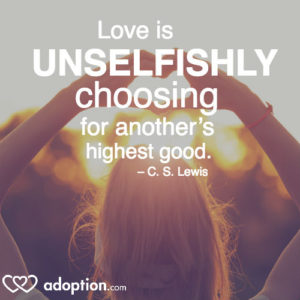June 27, 2018
It’s Important To Answer Your Child’s Hard Questions With Honesty
When you a parent through adoption, all sorts of hard questions come up. Questions about why they were adopted, or why their birth parents couldn’t raise them on their own. This is even more challenging when your child comes from trauma — perhaps drug exposure in utero, or a painful experience that happened at a young age.
When these questions come up, it is our instinct to protect. To sugarcoat the truth, maybe even lie. But truthfully, that doesn’t do your child any good. It is imperative that they trust you and lying does the opposite. It also doesn’t shield them from the truth. Perhaps momentarily, but there is no guarantee that your child won’t discover the truth down the line, and you don’t ever want to put yourself in a position where your child could feel reasonably betrayed by something you’ve said or done.
So how do you provide honest answers to tough questions?
It’s important to stage responses that are age appropriate. If your child’s birth mother was using drugs when they were born, the way you communicate that to your child will change based on their age and knowledge of the subject matter. It’s important not to focus on what the birth parent “did wrong” but why they lovingly chose adoption.
Do you have an open adoption? Some of the harder questions may want a consultation with your child’s birth parents. If the adoption is open, it’s something they will have to answer for as well, so being aligned on how you want to discuss the situation with your child is ideal. Open adoptions work best when there is a united front — undermining other members of the adoption triad can result in pain, confusion, hurt, distrust, and betrayal. It is always easier to have a tough conversation than to suffer the effects of dishonesty.
Make sure that your answer supports your child. It’s vital to focus on love and support from all sides. Some of the more painful sides of adoption can make your child feel different, unloved, or confused about their identity. And that’s not what you want. They deserve meaningful honesty in supportive way. And that should be top of mind when answering even the toughest questions about their adoption.



